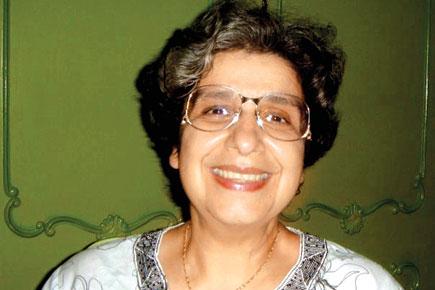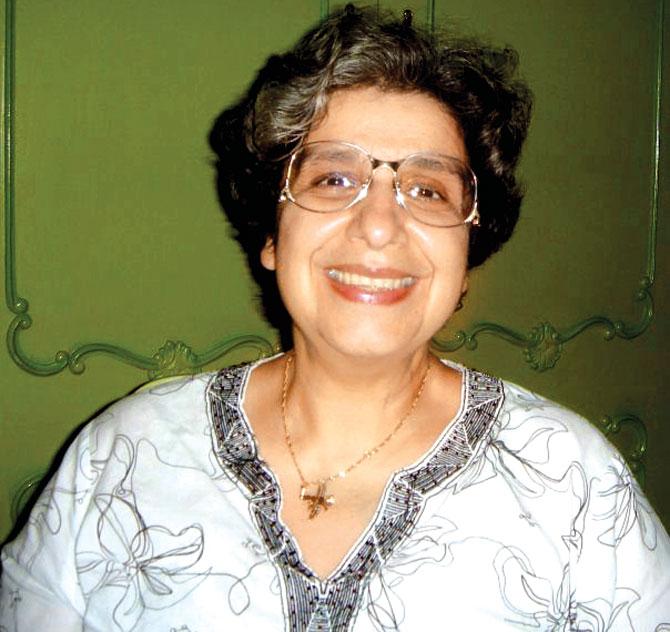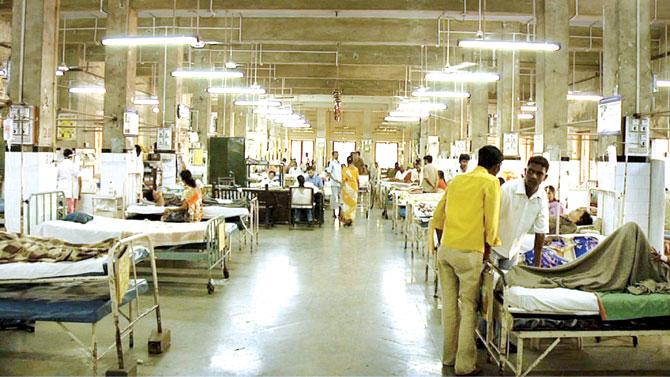At civic hospitals, tragedies are waiting to unfold. Watch Gulserene Dastur's Getting Better to know why

Gulserene Dastur
 For 64-year-old Gulserene Dastur, the death of her father in 2008 cemented the need to tell stories of unrecognised heroism. While on a holiday in Mumbai, her Geneva-based father suffered a tragic fall. For two months, he battled for life in the ICU at Jaslok Hospital. When he finally breathed his last, Dastur wasn't only grappling with the death of her father, but the abject shock of what a patient's illness could bring upon the family.
For 64-year-old Gulserene Dastur, the death of her father in 2008 cemented the need to tell stories of unrecognised heroism. While on a holiday in Mumbai, her Geneva-based father suffered a tragic fall. For two months, he battled for life in the ICU at Jaslok Hospital. When he finally breathed his last, Dastur wasn't only grappling with the death of her father, but the abject shock of what a patient's illness could bring upon the family.

Gulserene Dastur
At Jaslok she encountered people, who had sold their homes and given up their life-savings — all to meet the burgeoning medical expenses of their loved ones. There were also those, who were working in the background to ensure that healthcare wasn't the right of only the privileged. It was this uncertainty of life, death and everything in between that led Dastur to King Edward Memorial (KEM) Hospital in Parel. "I went there with the idea of making a small donation to help the poor, who often struggle to meet huge medical expenses," she recalls.
Dastur, however, returned with the idea of making a documentary on life within the corridors and wards of the hospital. The hospital sees over 1.7 million patients each year. Getting Better (2014), Dastur's first tryst as a documentarian, explores the central question of affordable healthcare in Mumbai, with KEM at the heart of her narrative.
The 69-minute-long film will be screened at Vikhroli's India Culture Lab on the occasion of World Health Day, April 7. It has been in the making for nearly seven years and was partly-funded from her father's savings. For the film, Dastur travelled between Switzerland — where she lives — and Mumbai, from 2009 to 2013, tracing the paths of doctors, patients, students and staff, who were trying to find ways to provide the best possible treatment for the largest number of people.

Getting Better captures life within the corridors and wards of KEM Hospital in Parel
Why KEM? "I visited other public hospitals while gathering material for my film. What I realised was that it was the most intense and over-crowded of civic hospitals in the city," says Dastur. "There are genuinely a lot of well-meaning people who work there and they are the real do-gooders. The hospital is always teeming with patients and their families, but the staff and doctors' zeal to never turn anyone away, is a mark of heroism," she believes.
One among them is Ravi Ramakanthan, who joined KEM as a student at the age of 17, and is now a famed radiologist. Dastur describes him as an 'institutional dinosaur'.
The 'ambitious' Sanjay Oak, former dean of KEM, also finds screen time. "When he arrived at KEM, he brought in a wave of energy that many found unsettling. But what impressed me was that he truly cared about his work and that he wanted to influence policy," says Dastur.
The one lesson that Dastur, however, took away from her experience of working on Getting Better, was the grim reality of inadequate primary care in city hospitals. "While KEM is doing an awful lot on a day to day basis, low-level primary care has affected tertiary hospitals with most senior of doctors being occupied in small cases."
On the personal front, this film helped Dastur in more ways than one. "It was my way of grieving the death of my father."
 Subscribe today by clicking the link and stay updated with the latest news!" Click here!
Subscribe today by clicking the link and stay updated with the latest news!" Click here!







